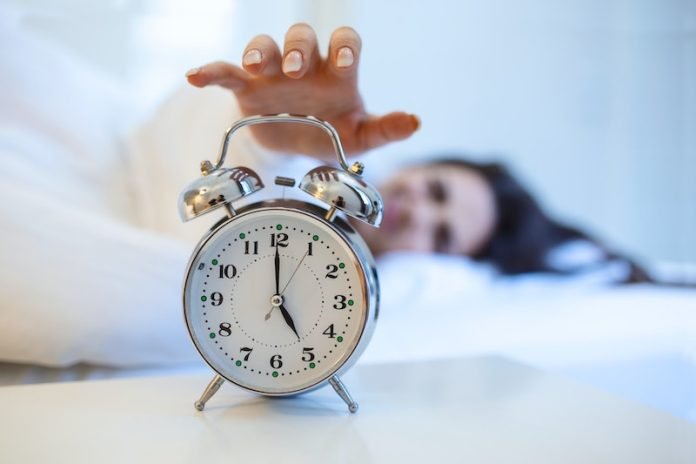
Cognitive behavioral therapy (CBT) is an effective primary treatment for insomnia in individuals with alcohol use disorder, whether or not they are abstinent from alcohol, according to a new study.
This is the first research to demonstrate that treating insomnia with CBT can reduce the adverse outcomes linked with excessive alcohol consumption.
Insomnia and Alcohol Dependence
Previous research has found that insomnia is prevalent among those with alcohol dependency, primarily due to alcohol’s disruptive impact on sleep.
While abstinence is generally recommended as a starting point for improving sleep, many patients continue to experience sleep issues after abstaining, negatively affecting the likelihood of completing treatment and increasing relapse risk.
Lead researcher Mary Beth Miller, an assistant professor of psychiatry at the University of Missouri, and her team wanted to test the efficacy of CBT in treating insomnia in patients early in their treatment for alcohol use disorder, thereby challenging the standard practice of waiting for four weeks of abstinence before starting CBT.
Testing CBT in Real-World Scenarios
The research team, working with the Harry S. Truman Veterans Affairs hospital in Columbia, Missouri, recruited 67 veterans undergoing addiction treatment in a VA program for a randomized clinical trial.
These veterans met the criteria for both insomnia and alcohol use disorder. The participants were randomly assigned to receive either five weekly sessions of CBT or one session of sleep hygiene treatment.
CBT, a structured, non-medication-based therapy aimed at helping individuals understand and manage their symptoms, was found to be more effective than sleep hygiene treatment in reducing insomnia severity.
Notably, the improvement in insomnia also led to reduced alcohol use, cravings, and negative behaviors associated with alcohol consumption over time.
Redefining the Approach to Treatment
This study’s findings challenge the existing recommendations to delay CBT for insomnia until patients have achieved a minimum of four weeks of abstinence from alcohol.
Instead, Miller suggests providing evidence-based treatment when patients are open to receiving it, highlighting the significant role of CBT in reducing both insomnia symptoms and alcohol-related problems among adults in early stages of alcohol recovery.
The study, supported by the National Institute on Alcohol Abuse and Alcoholism, is published in JAMA Psychiatry.
It builds upon a 2020 study led by Miller that found CBT to be effective in reducing insomnia symptoms among young adults who reported recent binge-drinking episodes.
If you care about depression, please read studies that vegetarian diet may increase your depression risk, and Vitamin D could help reduce depression symptoms.
For more information about mental health, please see recent studies about 5 signs of depression you shouldn’t ignore, and results showing new drug could start fighting depression in just 2 hours.
The study was published in JAMA Psychiatry.
Follow us on Twitter for more articles about this topic.
Copyright © 2023 Knowridge Science Report. All rights reserved.



